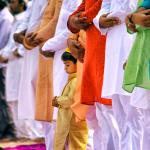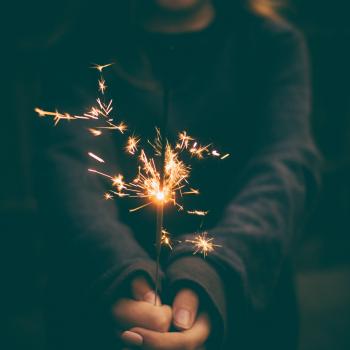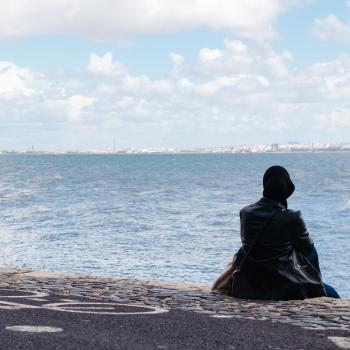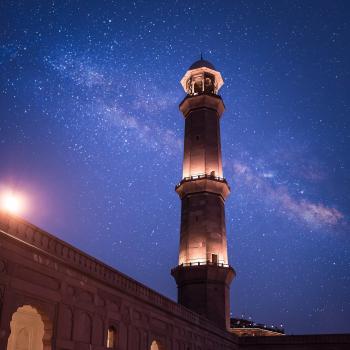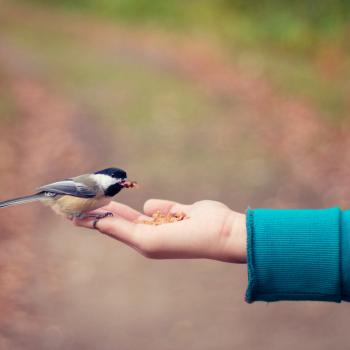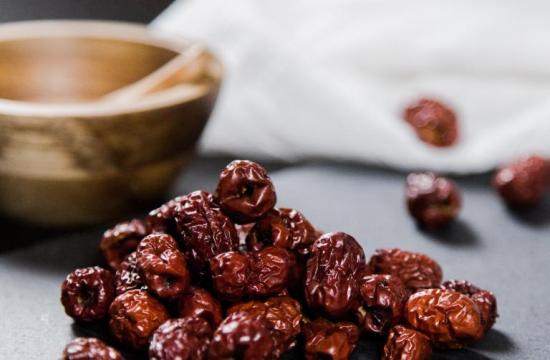
Every year, even months ahead, my Muslim friends watch in anticipation of the crescent moon, which I call the Prophet’s moon. They look forward to Ramadan as a time of reflection and as a time to get closer to Allah. I even have friends with major illness such as diabetes and others, as well as pregnancy, who risk their health or lives in fasting so they will not miss out on this blessed month. Even still fasting if they become ill; this is great dedication.
My Reality
I cannot fast because of medical reasons. I ask my doctor every year if I can fast. There was a time, when I was younger, that I fasted every day during Ramadan. Now I feel that I am deeply missing out on something—on a way to get closer to Allah.
I find it hard to explain to people why I cannot fast, because I do not have a physical disorder, but a mood disorder. If I fast, I become extremely ill. As I said before, there are many who fast who have a severe physical disorder, even though it is a big risk to their lives. As for myself, I take a lot of medication for my mood disorder, but I find it difficult to explain it to others. I simply cannot fast. For me, it is shameful. I feel left out, but not by choice. You cannot see a mental illness like a physical illness. You look completely normal to everyone else.
My husband fasts for the full 30 days. I get up with him to prepare breakfast for him (suhur), and for fajr prayer. I try to make sure that he eats and drinks properly. He has a heart condition. In the evening I help him break the fast with dates, and with black chickpea curry (chola), and beef barley split pea soup (haleem), and fruits. I also cook another meal of regular food which he can eat after that, and make mango lassi for him. My duty in Ramadan is to make sure that he is well fed and does not get sick.
The Essence of Ramadan
But still, the whole idea about Ramadan is not just avoiding eating or drinking—it is what comes out of your mouth in words, and how you plan to conduct your life. It is how you purify your life. It is how you plan to live your life after Ramadan.
Even though I do not fast, I go to iftar (the evening meal) at the mosque and at other people’s homes. They insist that I break the fast with them. I make sure that I am the last one to eat and let them eat their fill.
Spiritually, I feel left out. However, there are always things that I can do. The most important thing I can do is to be mindful of how I conduct myself, whether it’s Ramadan or not. It is to be a kind and compassionate person, and make sure that my words and actions do not hurt anyone. I should try to be as merciful and compassionate as God is.
There are also the five daily prayers to keep up. I can read the Quran each day, and to try to comprehend it, and read the biography of the Prophet, peace be upon him. I can reach out to others who are sick or have less.
I am alone most of the time during Ramadan. It is a time of reflection on what is going on in the world, to those who are less fortunate and those who are suffering from poverty and from wars. It is a time to visit those who are sick, and to pray for them. It is a time to help out and possibly do voluntary work.
A person who is not fasting can also do meditation and dhikr, and think about all the things that they have done in the past year. We can also try to ask forgiveness for our sins, and to make up for them by doing good, and thinking about what we can do better after Ramadan. I try to reflect on the impact I have on other people’s lives, or on other living things, as if I were going to die this very day. What would my legacy be on this earth? You can think about it as if it were a life review.
We should walk and sit outside, and admire God’s beauty, and reflect on this. Through these signs, there is proof that there is a God. Think of all the different signs of nature which are in the Quran. Just look around… We should simply sit and meditate on these things, and just observe what is going on inside of and around us— it is truly a miracle.
Mostly for me, with my illness, the physical struggle is to not become dehydrated. I can cut down on food and unnecessary snacks, although I have to keep a regular routine of eating, drinking, and sleeping. But for me, there is also the emotional strain of fasting. I have a great deal of yearning inside of me, and guilt. I do not hide the fact that I am not fasting, although it is hard to explain to others when it is not a physical illness.
Ramadan is a time of togetherness. We meet our community members every day for Tarawi prayers and at the mosque for iftar on the weekends. We all see each other together, which we do not always do, and we pray together as brothers and sisters in jamaat (congregation). We listen to the Quran every day in beautiful recitation. There is a beautiful bond and brotherhood during Ramadan.
If someone does not fast during Ramadan, they can make provisions for the sustenance of someone who is less fortunate, who cannot provide for themselves; this intention has to be done before Ramadan. This is not an excuse, and is only something for those who are not well enough to fast. Also, if you are temporarily sick or traveling outside your home to a certain distance, you do not have to fast, but you should make it up afterwards.
What Ramadan Is Not
Fasting should not be looked at as a time to eat excessively in the evenings, or to eat more gourmet foods, or as a time when we should go shopping in celebration. A lot of people gain weight during Ramadan because they miss the point. They overeat, and they sleep during the day and eat all this gourmet food at night. This is not the purpose of Ramadan. Others still have to work all day and are around food and non-Muslims who are very curious about the fast, and around temptation. This is truly a test.
This is a time for reflection about how others work hard even when they do not have enough to eat. One feels intense hunger and thirst. It makes us humble. It should make us humble and cause us to think about life. We should act as if this is our last Ramadan. We never know if we will make another Ramadan. We have to carry on mindfully to continue this humility after Ramadan.
There are many things that we can do even if we do not fast. Just being observant about how God is in our lives every day, and loving Him. I always light candles and incense in front of a vase of flowers to honor Allah every day. Every day, we should think of God and show it through our conduct, not just in Ramadan, but in how we interact with all living things even after the blessed month is over. Our actions should make Allah pleased with us every day. We should look at everything as sacred and as a creation of God, and act accordingly so that we do not hurt anyone or destroy anyone mentally or physically.
Ramadan is a time of worship—not a free for all celebration, where all you do is gain weight, and get nothing spiritual out of it. I feel sorry that I cannot fast, but God does not want me to destroy myself either, to the point that I cannot perform other acts of worship or to do my duty towards family or others. I still have a great responsibility to Allah and to others. He does not want me or others sick to the point of dysfunction or death. It’s like committing suicide in the name of God; He does not want that.
So please forgive me; I have the same responsibility for the same acts of worship as others. I also love Allah and devote my life to Him as much as those who fast for Allah. He wants me to love myself as well, and to take care of myself. Someone will always ask, “Do you fast?” and you will not always know how to answer due to the regret, but just say that I am trying my best to please Allah despite my challenges. It is up to Allah to see my intention, and I can only hope that others understand.
Follow Mostly Muslim on Facebook HERE.
Want your voice to be heard? JOIN OUR TEAM or send your guest submission to [email protected]! Visit the “Contribute to MM” page for more details.


